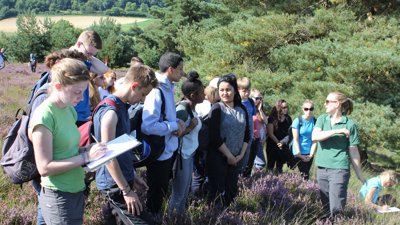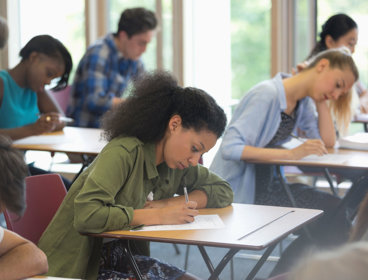The Curriculum and Assessment Review’s final report and the Government’s response were published earlier this week, with both recognising the importance of studying geography, including the insights it gives young people into contemporary world issues, and the skills to evaluate potential solutions to pressing global challenges.
The Society welcomes the recommendations in the report to build on the strength and real-world relevance of the existing geography curriculum.
Particularly notable are the commitments to:
- Update and refresh the programme of study at GCSE, and to embed more disciplinary knowledge at KS3, which will support progression, reduce repetition and deepen understanding of key geographical concepts for all young people.
- Embed climate change and sustainability appropriately and more explicitly across Key Stages, empowering the next generation of geographers to understand and tackle climate change.
- Clarify and reinforce the requirements for fieldwork with a particular focus on GCSE subject content and assessment, while ensuring integration across Key Stages, and maintaining accessibility and inclusivity. High-quality fieldwork offers a ‘real world’ opportunity for students to build disciplinary capabilities and subject understanding in geography, with fieldwork enquiry also opening doors to the development of wider skills such as data collection, critical analysis and problem-solving – essential in delivering a greener, digital future.
We are also pleased to see the recognition of:
- The value of opportunities for young people to engage with the outdoors, nature and with adventure, as well as gaining an earlier understanding of climate change and sustainability.
- The need to deliver a curriculum that reflects the issues and diversities of our society, ensuring all children and young people are represented, while also exposing them to a wide range of perspectives that broaden their horizons.
- The benefit of teachers having more flexibility to extend the curriculum and draw out its relevance for the young people in their classrooms, and respond to social and technological change.
- In the context of digital skills and of understanding of misinformation, the important opportunities related to mapping, location data, geospatial analysis and the understanding of provenance and authority of data.
Alan Parkinson, the Society’s Vice President for Education said: “Geography has a vital role to play in equipping young people with the knowledge, skills and interest to address the challenges we face in a rapidly changing world now and into the future, locally, regionally and globally.
“We look forward to working with the Department for Education and the geography subject community on these recommendations, recognising schools and teachers will need support to implement them, given the very limited capacity in the system and the complexity of some of the proposals.
“We appreciate everyone – in schools and beyond – who shared their insights about the geography curriculum and informed our response to the Curriculum and Assessment Review’s consultation.”
Read the full report and the specific recommendations for geography.
Read our response to the call for evidence.
If you have further thoughts and comments, please do contact us at education@rgs.org.



